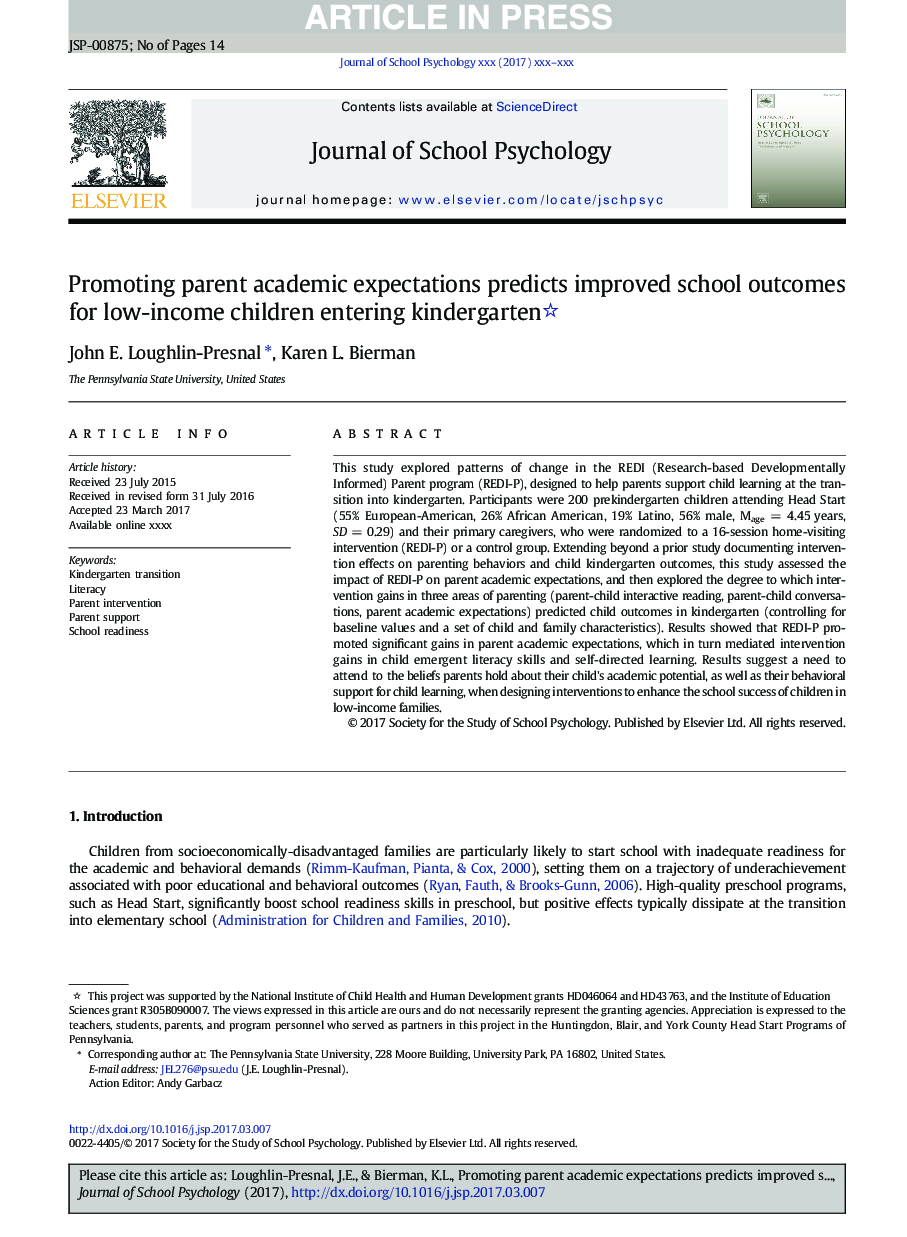| Article ID | Journal | Published Year | Pages | File Type |
|---|---|---|---|---|
| 4939801 | Journal of School Psychology | 2017 | 14 Pages |
Abstract
This study explored patterns of change in the REDI (Research-based Developmentally Informed) Parent program (REDI-P), designed to help parents support child learning at the transition into kindergarten. Participants were 200 prekindergarten children attending Head Start (55% European-American, 26% African American, 19% Latino, 56% male, Mage = 4.45 years, SD = 0.29) and their primary caregivers, who were randomized to a 16-session home-visiting intervention (REDI-P) or a control group. Extending beyond a prior study documenting intervention effects on parenting behaviors and child kindergarten outcomes, this study assessed the impact of REDI-P on parent academic expectations, and then explored the degree to which intervention gains in three areas of parenting (parent-child interactive reading, parent-child conversations, parent academic expectations) predicted child outcomes in kindergarten (controlling for baseline values and a set of child and family characteristics). Results showed that REDI-P promoted significant gains in parent academic expectations, which in turn mediated intervention gains in child emergent literacy skills and self-directed learning. Results suggest a need to attend to the beliefs parents hold about their child's academic potential, as well as their behavioral support for child learning, when designing interventions to enhance the school success of children in low-income families.
Related Topics
Social Sciences and Humanities
Psychology
Applied Psychology
Authors
John E. Loughlin-Presnal, Karen L. Bierman,
